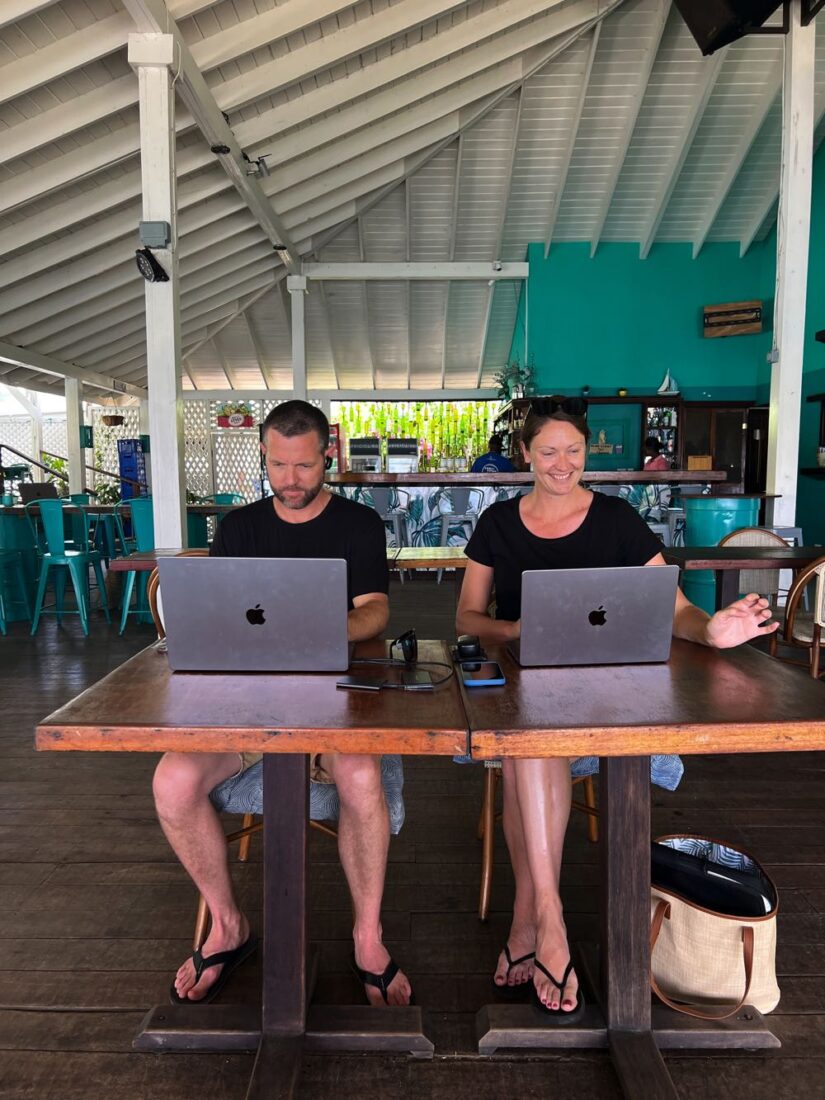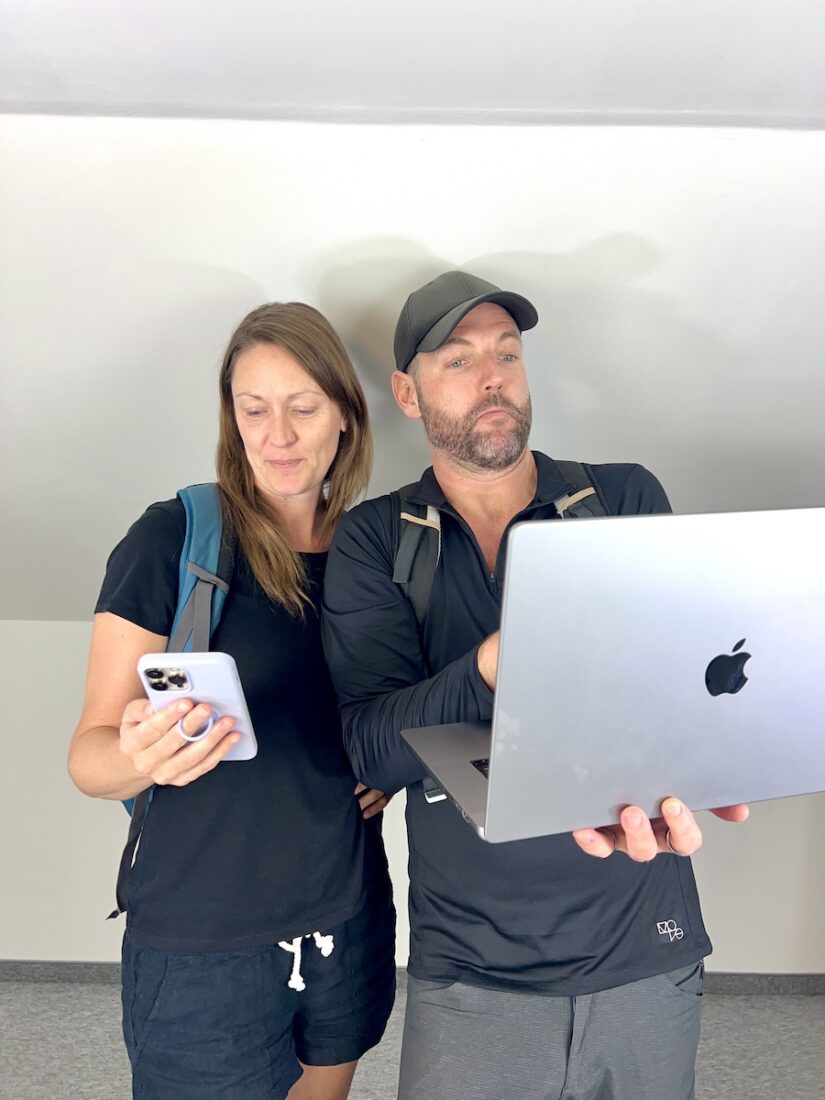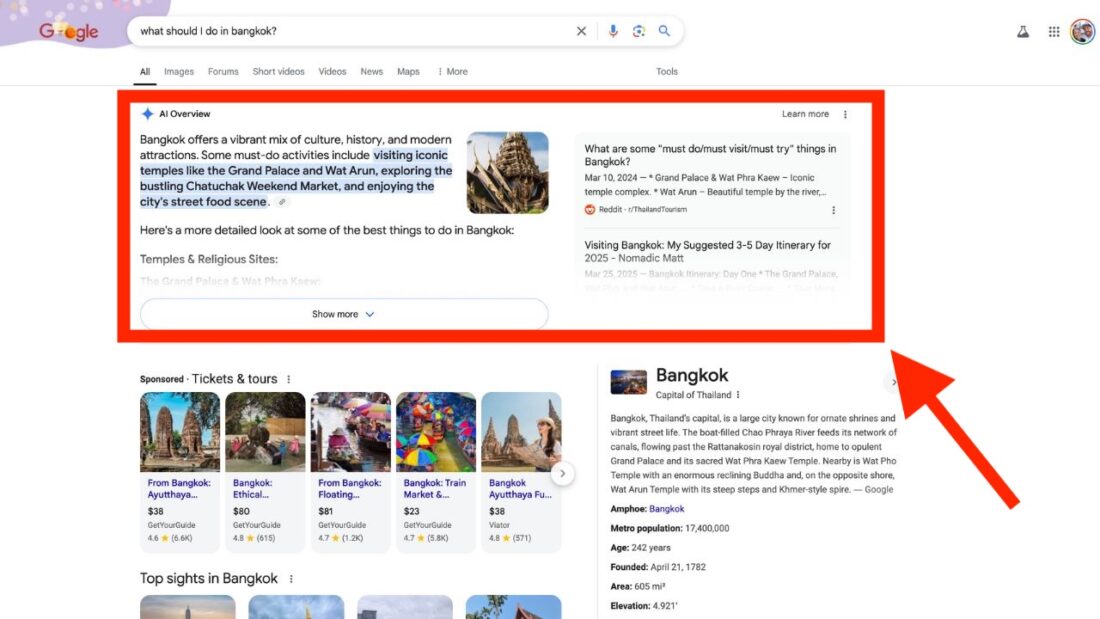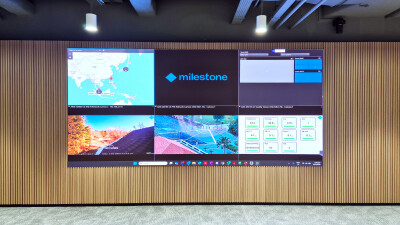Should You Start a Blog in 2025?

This isn’t an article I wanted to write… but here it goes.
Blogging as a business model isn’t just dying—it’s already dead.
In recent months, we’ve seen major blogs shut down, course creators abandon ship, and even people who made millions from SEO declare it game over.
But here’s what no one is saying…
This isn’t just about Google updates or AI. The way people consume content has fundamentally changed, and blogs are no longer part of the equation.
So the real question isn’t just “Is blogging still worth it?” It’s “If blogging is dead, what actually works now?”
Let’s get into it.
Why Even Top Bloggers Are Walking Away
For years, blogging was an incredibly lucrative business model. High-ranking blog posts brought in steady organic traffic, which could be monetized through ads, affiliate marketing, and digital products.
But in 2023, that all changed. Some of the biggest names in blogging started pulling out. Even we were offered over half a million dollars for our blog—but we turned it down. And then, things took a turn.
Traffic disappeared. Revenue plummeted. And old SEO strategies stopped working overnight.
So what happened?
The Brutal Truth About Why Blogging Tanked
This isn’t just another fluff story like the thousands of other clickbaity articles on the internet right now. I’m not going to tell you blogging is dead, and then later in this post say… unless you do it the way I teach in my courses.
No. I’m going to give you my real, honest take on the state of SEO, content sites, affiliate marketing, and blogging as a business model.
If you’re currently a blogger and you’ve been holding on optimistically dreaming of your traffic coming back, or if you’re a brand new blogger and you’ve just put a ton of work into your new site… or if you’ve always wanted to start a blog but now I’m sitting here and shitting all over the entire business model… don’t worry.

There IS a silver lining here. It’s a part of this story that no one is talking about… a shift that actually opens up the biggest online business opportunity we’ve ever seen.
And those who adapt now are going to win bigger than ever before.
Make sure you read to the end of this post because I’m going to talk about exactly what that shift is and how you can leverage it to explode your own online business.
So how did we get here? Why has blogging taken such a drastic downturn in such a short time? It wasn’t just one thing—it was a perfect storm of changes that hit all at once. If you’ve been wondering why blogs are shutting down and SEO strategies are failing, here are the biggest culprits behind the collapse of blogging as a business model.
1. Google Changed the Rules
Google rolled out AI-generated search results, which means fewer people are clicking over to actual blogs. At the same time, they prioritized forums like Reddit and Quora over independent websites.
If you search for something like “Best Travel Credit Cards,” you’re more likely to see a Reddit thread or TripAdvisor post at the top of search results than a well-researched blog article.
And this wasn’t an accident—Google struck a $60 million per year deal with Reddit to use their forums to train AI models. In return, Reddit’s content gets priority in search rankings, effectively pushing smaller blogs out of visibility.

This all started with the Helpful Content Update in 2022, and continued with the Hidden Gems Update in the fall of 2023. Instead of rewarding high-quality blog content, Google handed the search results over to forums.
Remember those traffic graphs of your favorite travel bloggers tanking? Well, Reddit’s traffic increased by over 650%, hitting 1.3 billion in that same timeframe. This was no mistake.
For small bloggers, this is devastating. Even if you write the best post on the internet, you’re fighting an uphill battle just to get seen.
2. AI Flooded the Internet with Junk Content
When ChatGPT launched, bloggers didn’t think, “How can I use this to make better content?” They thought, “How many AI-written posts can I publish per day?”
As a result, search results became flooded with generic, AI-generated content. Google responded by rolling out updates that penalized AI-heavy websites, but even high-quality blogs got caught in the fire.

And here’s the problem… most bloggers didn’t use AI to improve their content, or to help them research their facts, or make their sites more user-friendly—they used it to spam the web.
Since the release and mainstream adaptation of ChatGPT, research shows that as many as 7.5 million blog posts are being published every single day. The search results have turned into a wasteland of soulless, regurgitated AI content. Google knew this was a problem, so their response? Burn it all down.
Unfortunately, that meant even high-quality blogs got caught in the fire.
3. Google’s AI Answers Took Over Search Results
Google now generates AI answers right in the search results—pulling information directly from blogs without sending any traffic back to them.
If you search “Best Places to Visit in Thailand,” Google’s AI summarizes the best options at the top of the page. Users get the information they need without ever visiting a blog.

For bloggers, this means they’re not just getting buried in search rankings—they’re getting erased from the equation entirely.
If UGC and AI spam were the storm, Google’s AI-generated answers were the final tsunami that wiped out everything left standing. It’s like playing a game where you do all the work… and someone else takes the trophy.
Here’s the other brutal truth no one is talking about—even if Google wasn’t killing blogs, consumers already moved on.
Think about it. When was the last time you made a purchase decision—whether it was for a trip, a new phone, or a course—by reading a 3,000-word blog post?
You didn’t.
Instead, you probably:
- Watched a YouTube review
- Checked TikTok for quick pros & cons
- Looked at Instagram reels for real-world examples
- Asked in a Facebook or Reddit group for recommendations
- Read Amazon reviews and checked testimonials on social media
This is just how people buy now—we want quick, visual, and trusted information from people we actually follow and engage with.
You might think that this is a direct result of people losing trust in blogs because so many are just written with AI, but that’s not the case. The truth is, this change started happening long before bloggers had tools like ChatGPT and Claude.
Is SEO Totally Dead?
Not entirely—but for most independent bloggers, it might as well be.
Big brands with massive budgets will still use SEO. Even though ChatGPT recently became one of the top 10 websites in the world, currently at number 7, and is climbing quickly, Google is still the god of online traffic for now. It’s at the top of that list, so big companies with a lot of money will still fight for those top spots.

But the days of new bloggers ranking with great content alone are gone. The fight for search engine visibility is too competitive, and Google’s constant algorithm changes make it impossible to rely on organic traffic.
So if you’re still trying to grow your business through SEO blogging in 2025, you’re not just competing with Google—you’re competing with how people actually consume content now.
If you’re writing SEO blog posts and trying to rank in Google for keywords…. Stop it.
If you’re doing some variation of that, like trying to rank for Bing or ChatGPT… Stop it.
If you’re working on the technical SEO for your website and trying to optimize it. Stop it.
It’s a complete waste of time.
There are other things you should be working on if you want to build a sustainable, future-proof business, and we’ll get to that a bit later.
What Actually Happened to Our Blogging Businesses (And How We Pivoted)
We still make passive income from our websites, but only because we’ve been around for many years. We have 4 of them, and (thankfully) they’re still bringing in over six-figures a year from ads and affiliates.
We’ve invested in SEO and link building over the years, and built up our audience, which gave us some cushioning as everything collapsed.
But we knew we needed to pivot years ago. More than 7 years ago, we realized that we were putting WAY too many eggs in the blogging basket.

We relied completely on Google SEO, Affiliates, and Ads to pay us our salary. But it didn’t take long to realize that Ads dropped as much as 50% seasonally or depending on the political situation, and affiliates? Don’t even get me started…
I already wrote a post on how Airbnb cancelled their affiliate program without warning, costing us $100,000 per year. And that was just one of MANY times that happened to us.
Basically, we were making incredible money, but we had no control over our traffic sources, or the income coming into our bank accounts.
That’s why we started focusing on building our email list (a traffic source that we OWN) and selling our own products—something we had control over. This took me down a rabbit hole and years of research into learning how to create an awesome course, how to sell a course, how to create email sales automations and funnels, and basically how to earn money selling our own products through emails.
That part of our business was really successful and it got us to where we are now. But now, for the past 2 years, instead of relying on blog traffic and SEO to bring in leads, we’re doing it through social media.
Now before you say what I used to say back then and be like “I hate social media”, let me tell you that for one, you’re probably 40+ like me, and two, that attitude will likely be the single reason you probably won’t have a successful online business in 5 years.
What This Means for the Future of Online Business
Blogging is no longer a viable business model, but that doesn’t mean online business is dead. In fact, there has never been a better time to build a profitable business.
The best way I can explain this is through a surfing analogy. No, I’m not a surfer, but just bear with me for a minute…

We were riding this massive wave of SEO and Blogging. We made millions of dollars on that wave and at the time, we thought it was the best wave in the sea.
But while we were cruising on that wave… a bigger, more beautiful, and more sustainable wave was building momentum behind our wave.
That wave was Social Media.
In business, you have to know when to get off the wave. Because if you ride it too long, it’ll crush you. And in businesses that involve technology, those waves can come extremely quickly.
In the tech landscape, the SEO wave was like a massive tidal wave. It lasted SO long, and we’re incredibly grateful for that.
But now, the new wave is here, and it’s been here for a long time, us older generation just didn’t see it.
The Future of Online Business: Social Media, Digital Products, and Email Marketing
If blogging was the old wave, social media is the new one. And it’s the biggest opportunity for organic traffic and monetization we’ve ever seen.

This wave is the biggest opportunity we’ve ever seen in the online world:
- It’s the biggest opportunity to build a massive audience for free
- It’s the biggest opportunity for organic traffic
- And it’s by far the biggest opportunity to monetize and make millions of dollars from selling digital products
1. Build an Audience with Short-Form Video
Platforms like Instagram, TikTok, and YouTube Shorts are where people are consuming content now. Instead of writing 3,000-word blog posts, creators are building massive audiences through short-form video.
2. Sell Your Own Digital Product
Unlike blogging, social media lets you monetize fast—if you have the right product. Instead of earning $0.002 per visitor through ads, you can sell a $37 digital product and make real money instantly.
People like Natalie from Boss Babe have made over $100,000 per month selling a simple digital product. And we know of a woman who made over a million dollars in a year from her tiny audience of less than 3,000 people.


This just wasn’t possible with blogging. There might’ve been some off chance that you got picked up by a big TV network or something and you went viral overnight, but for 99.9% of bloggers who were just writing blog posts for SEO, it would take months, often years, before they’d see any income.
Even me. I built a fly fishing website from $0 to $8,400 per month in a single year. But for the first 6 months, it earned next to nothing. And I knew what I was doing!
3. Use Email Marketing to Automate Sales
Your blog should be a website—not a content hub. It should:
- Build authority
- Capture emails
- Sell your product
Email marketing is where the real money happens. By leading social media followers to a freebie, you can build an email list that nurtures leads and automates sales.
Of course, you can’t just make money on social media by posting funny cat videos. You create highly targeted content that speaks to a specific person, helps them achieve a specific transformation, and that content sends them to your email list where they enter their name and email to get your super valuable freebie.

It’s from that freebie, and from the magic of email marketing that you’re able to sell your digital product to them and make money on autopilot.
Look, making $17 on a $500 Airbnb booking was great, and earning 0.002 cents per visitor on our blog was also cool, but there’s nothing like the feeling of waking up and seeing that someone purchased your $500 course or your $4,000 coaching program. It’s validation, it’s exciting to be able to have a real impact and help people, and it’s the first steps in building a real, loyal community.
The Future is Here—And It’s Not Blogging
Blogging used to be an incredible business model, but times have changed. Google and AI have made it nearly impossible for new bloggers to succeed the way we did years ago.
But that doesn’t mean the opportunity is gone. It’s just moved.
Writing SEO blogs had become monotonous and boring. Ask any successful blogger, we were tired of writing the 10 best things to do in Bangkok and the 15 best budget microwaves.
Do I miss the passive income from blogging? Absolutely, but that same passive income is available with short-form video and great email marketing.

Blogs take a TON of work. So to do all that work just to have a Google Algorithm update or AI completely wipe you out overnight? That’s just not worth it.
The future is short-form video. The future is creating a valuable product. The future is having an epic email list that people love being subscribed to. The future is being a real human being, and really connecting with your audience online.
This is the future. And the people who embrace this shift now are going to win big.
If you want to build a business that actually works in 2025, focus on short-form video, digital products, and email marketing. This is how you create a real, future-proof business.
If you’re ready to stop wasting time on outdated strategies and start building a profitable business, grab our free training below that shows exactly how we—and our clients—are doing it.
The biggest online business opportunity we’ve ever seen is happening right now. The only question is—are you going to take it?
The post Should You Start a Blog in 2025? appeared first on Goats On The Road.
















































